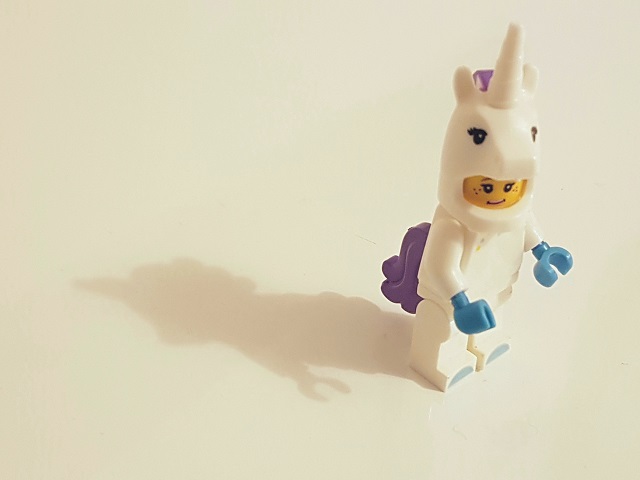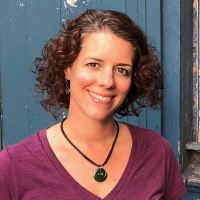For 12 years, I have been exploring the concept of Sabbath, and my congregation has been practicing it together and letting it shape us.
Sabbath is an intentional time of stopping, given to us by God, to remind us whose we are and who we are.
Quarantine is an intentional time of stopping, required of us by circumstances, to mitigate loss and preserve human life.
Here are some Sabbath lessons I am seeing rise up in Quarantined Time:
We resist rest.
The story of our culture is that rest is for the weak or the lazy. Who we are is what we do.
So what happens when we can’t do what we normally do? We will find other things to do. We will flee stillness and pursue busyness. Whether we are working from home or just stuck at home, the urge to fill the space and time with work can be intense. We’ll pack our kids’ “school” days, lengthen our to-do lists, and fight to make this time “worthwhile” and “productive.”
It is necessary to be told to you have to stop, as in the Sabbath command, or we will not stop. (Unless we are sick – in which case, it’s our body that has told us we have to stop).
We tell ourselves rest is a reward earned after lots of hard work. What if we told a different story? What if we embraced this opportunity to rest? What if we saw rest as a noble honoring of our humanity, a recognition of our value apart from what we accomplish or achieve? What if this time was for going slower, sleeping more, living more gently?
Detox is uncomfortable.
The idea that our worth is tied up with our productivity is pervasive and powerful, and withdrawing from that idea is painful. In my own practice, I have learned that Sabbath days can begin restless, aimless, uncomfortable. They can bring up unpleasant emotions we’ve tamped down.
When we have bought into the lie that the measure of a day is how much we got accomplished, stepping out of our means of production (and consumption!) leaves us feeling unmoored, even panicky. Exposed. Who are we without the doing that defines us?
But that restlessness is a gift that can turn us back to God. It illuminates the lie, and exposes how deeply it has sunk into us. We can meet it with self-empathy, Look how uncomfortable this is! And we can trust that we will not stay there. It takes time to get through the discomfort to the gifts on the other side. But practicing Sabbath regularly has taught me that we get there, and that it’s worth the struggle.
We are not God.
God is God. We are not. There is so much we thought we were in control of, that we really aren’t. Sabbath reminds us of this. We are creatures who work very hard to transcend our creatureliness. Electricity, air travel and the internet make it so we can be more places and do more things than a human really can (or should) do. Resisting the natural rhythms of day and night, and the boundaries of location and community, are a normal way of life for us. Sabbath makes us stop and return to ourselves to place and time. It tells us to put down the things that we use to pretend we are more powerful than we are, and to accept our limitations. Who would choose to do this all on their own? Not many. Not me. This has to be mandated from above, or it would never happen.
So if we won’t listen to God’s directive in the Big 10 (which Christians mostly ignore or take as a nice suggestion for self care) we’re now having to follow our governments’ directives: Stay home. Stop traveling. Don’t go in to work. Don’t go out and do things. Stop spending money on non-essential things.
When all the things we use to feel effective and in control are taken away, suddenly we’re listening the wisdom of the birds. We’re syncing back up with the rest of nature.
Inside our limitations, all sorts of options open up to us now: Paying attention to the faces of our neighbors. Getting enough sleep. Sitting down to eat together instead of driving through for food on our way to another commitment. We have the chance to rediscover the joy of being just what we are. Perhaps we can let God be God, and we can remember what it means to be human.
Rest is the beginning of creativity.
Once people have started to let themselves receive the STOP and slow down into the moment, beautiful things come out of it. Life begins in rest. The Jewish day begins at sundown, so that everything we do comes first from not-doing. Whenever we let ourselves rest, we wake up to life more fully. Instead of frantic or pressured, straining to keep up, we begin from a grounded, settled place. Inspiration is born from stillness. Slowing down to be present right here, we feel the stirring within to create, or connect, or celebrate.
Look at all the lovely things springing up on the internet: people staging home recreations of famous works of art, musicians and children playing instrument concerts on front porches, LEGO masterpieces and poems and blessings being written, stories being read aloud a bit each day, songs being sung by hundreds of people together apart. Made in the image of God (who rests), we are wired not just to exist, but to contribute to the harmony of life. If we stop long enough to return to our ground of being, that desire wells up in us again.
We have more freedom than we claim.
Sabbath is designed to remind us that we are free. We are all slaves to something—whether that’s our jobs, other people’s opinions, or the relentless push for more, or bigger, or better. Sabbath would have us stop on a regular basis, to purposely step out of the noise and the mindless, relentless, competitive routines, in order to remember who we really are and what really matters to us. This unchosen, enforced STOP that most of us are living in is doing the same thing to us.
I am watching my social media streams fill up with people who, having gotten through the initial shock and resistance, are now sensing the gifts in this giant time-out. They’re saying things like, “Maybe my life doesn’t need to be so busy after this.” “Maybe I can say No to more things.” We don’t have to do everything or be everything. We make choices. We are allowed to say No. Maybe when we come out the other side of this, we can live a little more free.
We belong to God.
We believe we can, and should, spend our lives ensuring we are stable and secure. But all that feels precarious now. Savings are disappearing, jobs are gone, our economy is teetering, our health is in jeopardy, our loved ones are at risk. What we thought made us “safe” turns out to be mostly illusion.
Sabbath makes us step out of all those things regularly so we don’t forget that. A pandemic takes them all away at once and reminds us starkly. We cannot save our own lives. Our only security is being held in the love of God. “In life and in death, we belong to God.” There’s another freedom, a different, deeper safety, that comes when we understand ourselves inside a vast story, held by love. No matter what happens, we are held by love.
We belong to each other.
Sabbath is meant for all, for everyone to stop at the same time. That’s because when everyone stops, the lies about competition and control, who matters more and who is less important, who is enemy and who is ally—they disappear. We are all human beings alongside other human beings. Sabbath is a great equalizer. Turns out, so is a pandemic. Nobody gets a special pass; we are all affected. Lost jobs, lost loved ones, lost health, lost futures, lost plans, lost order and patterns of life—nobody on the planet is escaping loss. We are all vulnerable. Our humanity and mortality is front and center. We are in this together after all. When we can let that sink in, we realize not only do we need each other, but others need us.
The outpouring of support and love is a wave that keeps lapping up on the shores of each new day. You could spend infinite hours online scrolling through stories of:
- People helping one another, from global scientific collaboration to neighbors filling their little free libraries with food;
- People hanging out their apartment windows at shift changes and applauding medical workers coming in and out of hospitals;
- People who have never needed help before are visiting drive-through food pantries receiving from others.
- People sewing masks, decorating sidewalks, delivering groceries, families singing on YouTube, and neighbors singing off their balconies to each other.
We belong to each other. This is the fundamental truth in God. When we are forced to stop and step out of the ordinary, we remember this. And remembering this changes us.

